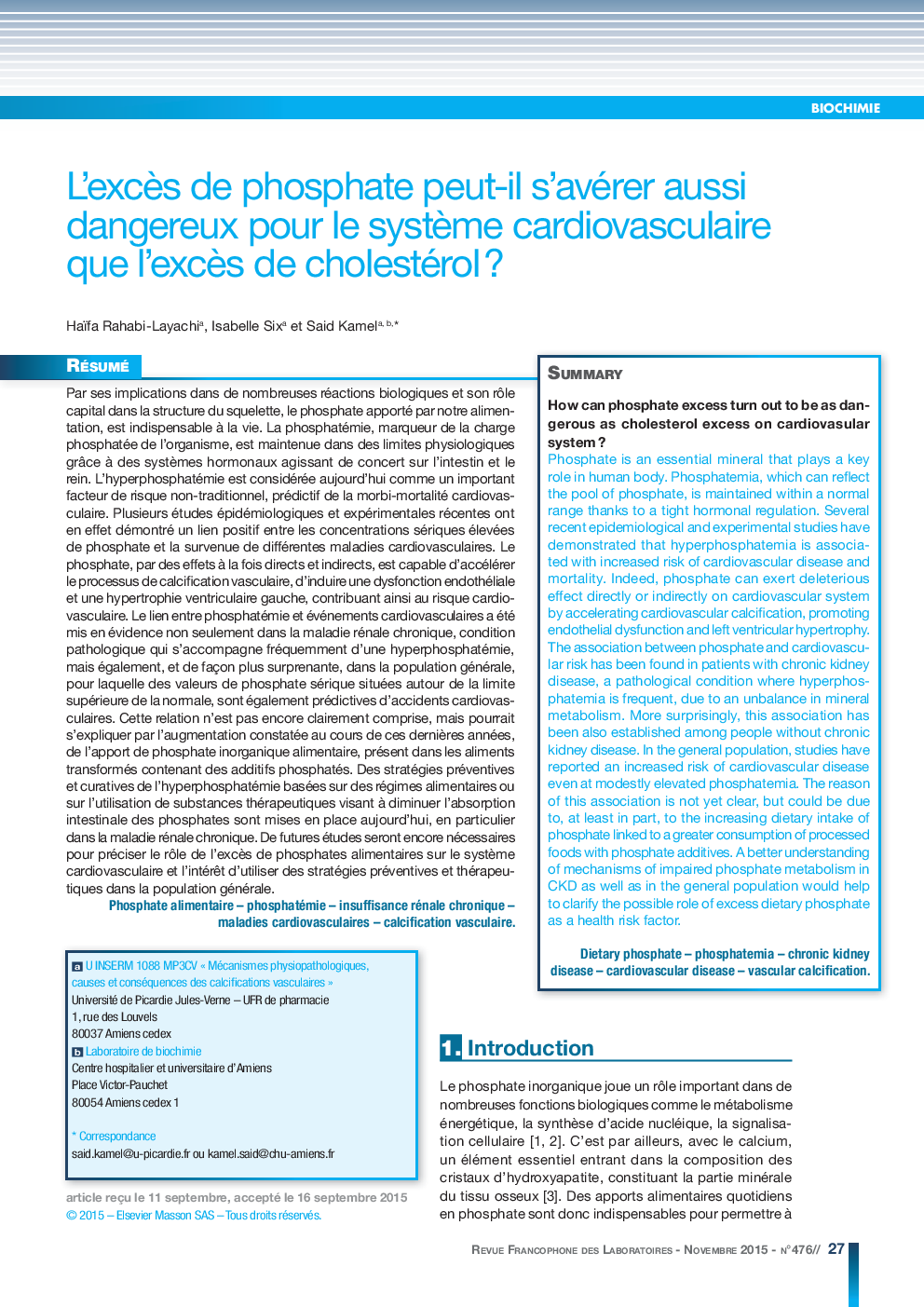| Article ID | Journal | Published Year | Pages | File Type |
|---|---|---|---|---|
| 7646953 | Revue Francophone des Laboratoires | 2015 | 8 Pages |
Abstract
Phosphate is an essential mineral that plays a key role in human body. Phosphatemia, which can reflect the pool of phosphate, is maintained within a normal range thanks to a tight hormonal regulation. Several recent epidemiological and experimental studies have demonstrated that hyperphosphatemia is associated with increased risk of cardiovascular disease and mortality. Indeed, phosphate can exert deleterious effect directly or indirectly on cardiovascular system by accelerating cardiovascular calcification, promoting endothelial dysfunction and left ventricular hypertrophy. The association between phosphate and cardiovascular risk has been found in patients with chronic kidney disease, a pathological condition where hyperphosphatemia is frequent, due to an unbalance in mineral metabolism. More surprisingly, this association has been also established among people without chronic kidney disease. In the general population, studies have reported an increased risk of cardiovascular disease even at modestly elevated phosphatemia. The reason of this association is not yet clear, but could be due to, at least in part, to the increasing dietary intake of phosphate linked to a greater consumption of processed foods with phosphate additives. A better understanding of mechanisms of impaired phosphate metabolism in CKD as well as in the general population would help to clarify the possible role of excess dietary phosphate as a health risk factor.
Keywords
Related Topics
Physical Sciences and Engineering
Chemistry
Analytical Chemistry
Authors
Haïfa Rahabi-Layachi, Isabelle Six, Said Kamel,
